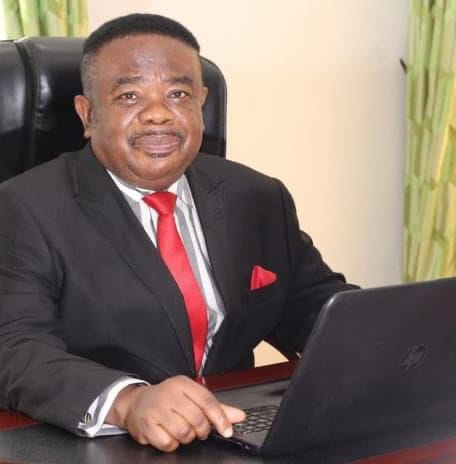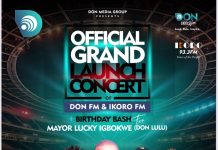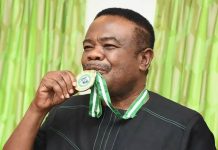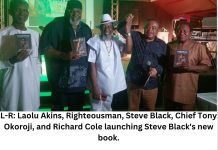Last week, I told the story of how within three months of being elected President of PMAN, I abandoned my flourishing job at EMI, the international recording company, without any formal resignation and became a full time advocate of the Nigerian creative industry, without any salary.
Despite the tremendous activities we initiated at PMAN, the limitations of the association were obvious To close watchers, PMAN was short on staff, short on money, short on national spread but very strong in advocacy.
Indeed, a crop of journalists who were excited about the many stories that were constantly developing at PMAN made the PMAN secretariat at No 1 Oremeji Street, Ikeja, their primary beat. This group of journalists who began to be addressed as entertainment journalists gave the association wall-to-wall coverage. Among the journalists were the irrepressible Azuka Jebose Molokwu of The Punch, Jackson Ekwugum at Guardian Express, Alvan Ewuzie of Champion, Kenneth Tadaferua at the Mail, Siaka Momoh of Vanguard, Edmund Enaibe at The Republic and the Sierra Leonian born Kolosa Kargbo, a writer of immense talent.
The likes of Femi Akintunde Johnson, Jahman Anikulapo, Kunle Bakare, Hakeem Ikandu, Muka Popoola, Kazie Uko, Charles Okogene, Ifeanyi Nkennor, Ogbonna Amadi, Jude Arijaje, Wale Olomu, Biola Ogunduyile, Emma Agese, Zik Okafor etc, succeeded this initial group of journalists in the coverage of PMAN.
The biggest problem however was that the music industry was deeply fractured. There was significant mistrust between the major multinational recording companies and a lot of the indigenous companies. There was equally no love lost between the artistes and nearly all the companies.
A fiery gentleman called Aigbe Lebarty who had contested the PMAN presidency against me, filed several court cases and started a nasty media campaign, deploying a self published newspaper called Weekend Mirror. When he lost in court, Mr Lebarty resuscitated a long dead musicians’ association called Nigerian Union of Musicians (NUM), declared himself president of NUM and did all he could to derail PMAN. My response was to ignore him into irrelevance. While this approach worked, it took a while because Mr Lebarty was a die-hard. The result was that too much energy was dissipated and the industry could not speak with one voice on the issues in which unity was badly needed.
One issue in which unity was absolutely necessary was the struggle for a new copyright regime. I engaged in rapid fire diplomacy and discussed this problem with some of the heads of the recording companies and we agreed that something needed to be done quickly to unite the industry. With the support of Bode Akinyemi, my former boss at EMI; Ton Seysner, Managing Director of Polygram Records; G.A.D. Tabansi of Tabansi Records; A.O. Awofala of RMNL and Keji Okunowo whose CBS Records had become a significant player, PMAN invited all sections of the industry to a lunch meeting at Lagos Sheraton Hotel, Ikeja on November 12, 1987.
The meeting was attended by the heads of all the major multinational and indigenous recording companies, the distributors, the manufacturing companies, the packaging manufacturers, the studio owners and a strong PMAN delegation. At the meeting which I presided over, the decision was taken to set up the Nigerian Association of Recording Industries (NARI) to act as a rallying point within the industry. The idea of NARI had been muted in the past but the energy to get it started was absent. Mrs Keji Okunowo was elected Chairman and Mr. Goddy Tabansi of Tabansi Records became Secretary.
The setting up of NARI began a period of unprecedented co-operation in the music industry. For about a year, the PMAN Secretariat hosted the secretariat of NARI and its meetings as the organization was nurtured. Later, NARI set up its own office at 272 Ikorodu Road,Lagos. A lot of problems which could have ended up in court were resolved on the NARI table. A lot of respect and co-operation also developed between me and Mrs Okunowo and we joined forces in the copyright fight. The birth of NARI was a chance for a new beginning.
The copyright campaign was going on at the same time that the wider structure of PMAN was being built across the country. In most places, the two objectives were tied. Acting General Secretary, Okuoimose E. Okuoimose was on the road, constantly setting up the framework for new PMAN chapters and arranging meetings everywhere.
It became our job to let every stratum of leadership in our nation to understand the very important role that Intellectual Property would play in a rapidly changing world. I had studied my subject well and spoke about it with clarity. Alongside other executive members, especially Ms Onwenu and Mr. Okuoimose, I spoke to State Governors such as Amadi Ikwechegh in Owerri; Bode George in Akure; Tunde Ogbeha in Uyo and later, in Benin; Tanko Ayuba in Kaduna and others in Enugu, Ilorin, Port Harcourt, Kano, Calabar, etc.
PMAN was constantly on the move and constantly in the news. At every location, the team spoke to the resident musicians, the media, police commissioners and commissioners responsible for culture. Some of the Commissioners we met were Sarah Jibrin in Ilorin, Chris Anyanwu in Owerri, Moses Ekpo in Uyo, Taiwo Alimi in Abeokuta, etc. The pursuit of the objectives took the unstoppable PMAN team to the palaces of the Emir of Kano, the Alaafin of Oyo, the Obi of Onitsha, the Paramount Ruler of Uyo, the Emir of Ilorin, the Obong of Calabar, the Eze Apara Rebisi in Port Harcourt, Eze Onuegwunwoke in Owerri, Eze Ikonne of Aba, etc.
It was indeed at the Palace of Eze Ikonne of Aba that I was surprised and conferred with my first Chieftaincy title,”Akaneme Uwa Obioma” – the hand that brings happiness to the world. . (To be continued)
















